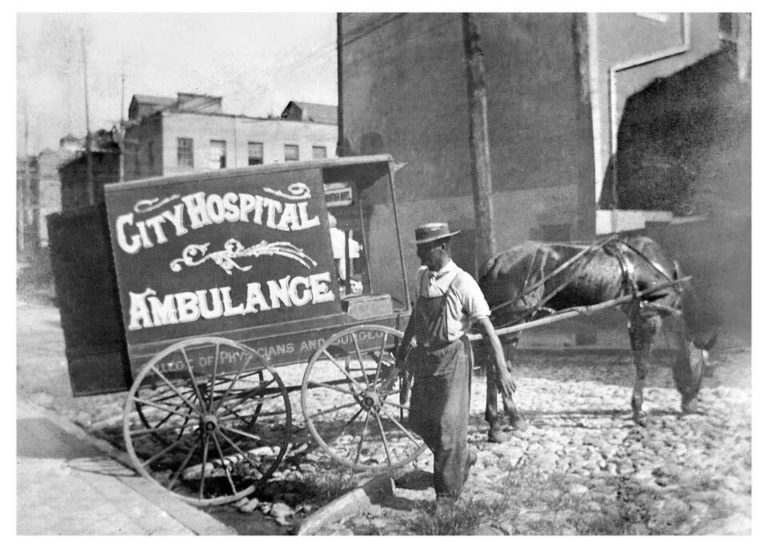
It’s now almost nine years since I retired from active work in EMS. When I retired, I thought that the 35 years I spent in EMS with one agency had gone by quickly. It had, but it was nothing compared to the time since I took off my uniform for the last time, emptied my locker, and turned in my gear.
I’ve managed to stay close to EMS as a teacher, consultant, and Quality Improvement advisor. It’s not quite the same as being on an ambulance, but it also doesn’t involved nights, weekends, holidays, wolfing down meals, and always being tired from working and trying to have a “normal” life.
Life is just a series of trade offs, I guess.
Up until the hysteria of the pandemic gripped the world, I also managed to keep in touch with many of my co workers. There would be retirement parties, informal get togethers, and as a retired department member I was able to attend training for free.
The last meant that in addition to getting my recertification requirements out of the way for free, I’d be able to see other retirees and many still active EMTs and paramedics. I also met many of the people who have been hired over the years.
I don’t know if that benefit will resume next year when I again need a refresher course, but I hope so.
What brought all of this into sharp focus was looking at my former agency’s Facebook page over the last few weeks and seeing half a dozen former co workers retire. Some of them, about half, were people that I trained when they were new department members. Talk about feeling old.
In the years just before and after I retired many of the people I started working with in the late 1970s also retired. Then it slowed down for a few years as the next cohort didn’t have enough time in to retire with their pensions intact.
This makes me melancholy, but it’s the way of the world.
The late blogger “Neptunus Lex” posted about this back in 2008 before I was thinking seriously about a retirement that still seemed years away.
The post is called Milestones and you can read it thanks to some of his regular readers who downloaded his posts before they disappeared when it was shut down some time after his untimely death.
It’s well worth the read, but here is the passage that has stuck with me since I read it thirteen years ago.
There are no irreplaceable men. If you want to know the hole you leave behind when you go, put your fist in a bucket of water. Now pull it out. There. That’s the hole.
As much as we might flatter ourselves, agencies are organisms and will continue off after shedding individual shells.
The cohort of people hired in the mid to late 1980s are starting to retire and leave the service. In another few years there won’t be many people left with whom I ever worked. At best I’ll be a name that some now retired guy mentioned a few times when telling stories about the old days. Or something like that.
When I retired I had to decide what I wanted to do for the rest of my life. I worked with guys who filled their post retirement days with work not remotely related to what they had done before. Others did nothing. I don’t know how you go through your late 50s and 60s doing nothing all day. I couldn’t contemplate doing that, so I found a job that entailed some teaching, some reading of reports, and some counseling EMTs and paramedics when their performance was sub optimal.
Or maybe the job found me. My last partner and I were discussing my impending retirement and he said that my natural niche would be teaching providers the things they don’t teach you in the book. Which is a good part of what I do. I don’t tell “war stories” I use “illustrative anecdotes” that just happen to contain stories from the old days.
I help providers write medical reports that will keep them out of trouble with their bosses and state regulators. The saying “If you didn’t write it, you didn’t do it.” predates my tenure in EMS. I l learned it in the early 1970s when I took my first EMT class. Reports were a lot shorter then because expectations for EMTs were pretty low and other than on TV there weren’t any paramedics in this part of the country.
Requirements for reporting now are much higher for clinical, financial, regulatory, and other requirements. Ironically, electronic Patient Care Reports (ePCR) make it harder to write good clinical reports in their quest to become good financial and data collection tools. As a result a half generation of providers don’t know how to write a medical narrative.
Which plays into my strengths in ways I never expected. I spend as much time teaching people how to write a report as I do teaching them how to improve their patient care.
Service chiefs even ask my advice on various things. It’s an odd feeling being called into the chief’s office and not getting yelled at for something.
It’s a nice way to supplement my not bad at all pension, meet new people, and keep current with what’s going on in EMS. It even gives me more to write about on this blog.
I’ve been saving some reports that are good teaching tools. Which means that they were poorly written and usually reflected sub optimal care. Informally those are known as “train wrecks.” I’ll be going through them and redacting protected health information and will be using them for blog posts in the coming months. Fortunately (for me) there are always a couple in each batch of reports I get to review.
Look for those in a new category named “Tales From the Journal of Iatrogenic Medicine.”